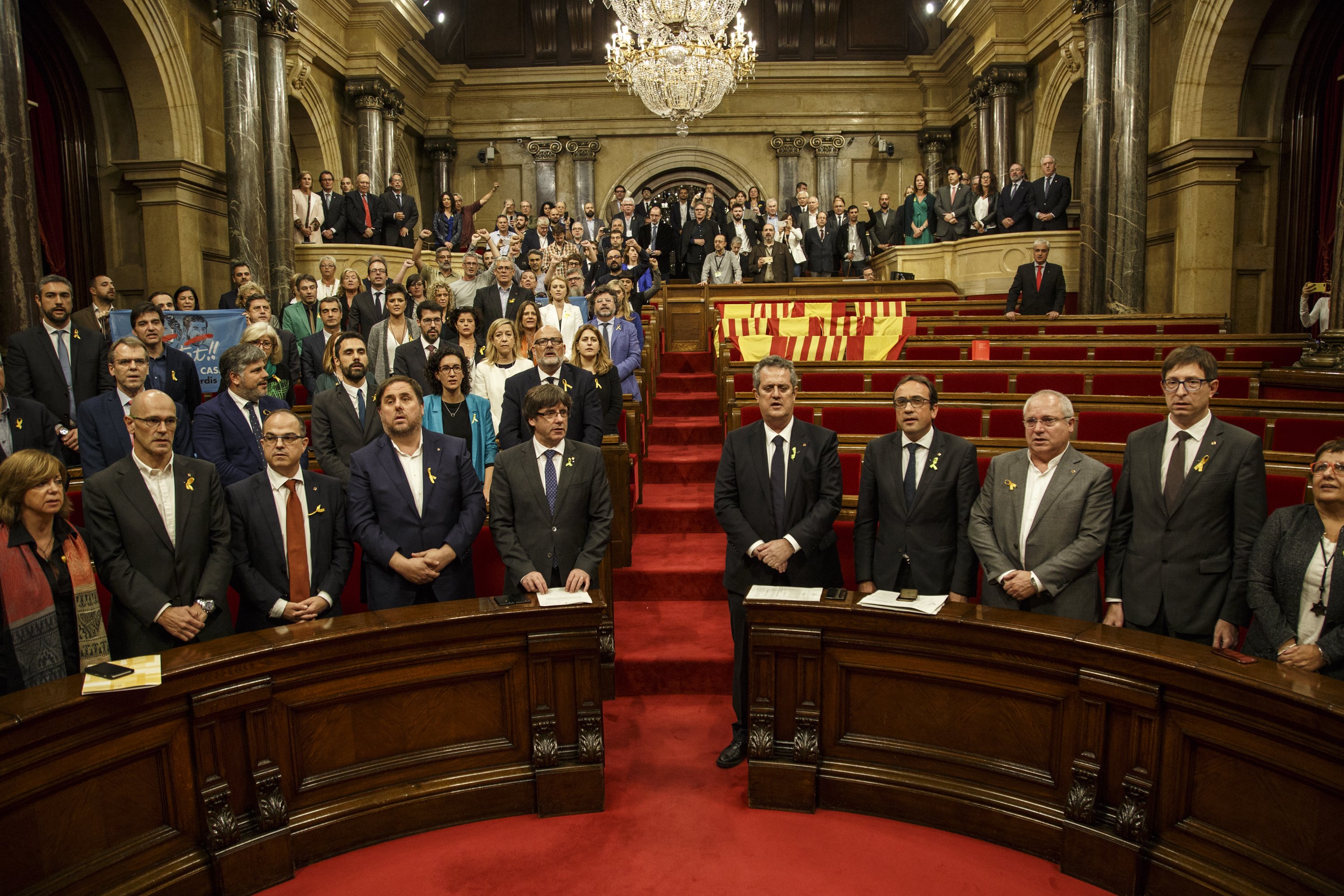Leading British business newspaper the Financial Times has defended the amnesty for Catalan independence prosecutions in an editorial published this Monday. The FT considers that the push for an amnesty law by the Spanish government of Pedro Sánchez, in negotiations with independence, "is a gamble worth taking". The paper argues that "a politically expedient path can also be the right one to take". The Socialist (PSOE) negotiations with the Catalan pro-independence parties, which seem to be in the final stretch, are now being put under pressure from senior judicial bodies, through specific initiatives by judges - as in the Democratic Tsunami case - and by politicians - with street demonstrations being promoted by the People's Party (PP) and the extreme right. Some leaders of the Catholic church in Spain have also stepped into the fray with statements against the amnesty.
The Financial Times, which calls the referendum of October 1st, 2017 "illegal", points out that that pro-independence initiative and the Spanish "nationalist backlash" continue to "make stable government hard to come by". After the general election of July 23rd, the business newspaper recognizes that Sánchez needs the support of the pro-independence parties to return to government and that the "price" is "an amnesty for hundreds and potentially thousands of Catalan politicians, officials and activists who enabled the failed independence push or protested against the efforts of the Spanish state to suppress it". The publication highlights that Carles Puigdemont is "chief" among these politicians who could be amnestied.
An expedient policy
Despite the expressions of opposition, the FT stands up for the amnesty as a necessary measure for the political stability of Spain, and thus sees the initiative as both "an expedient policy", and also "the right one for Catalonia and for Spain". The British newspaper believes that the independence movement has created "enormous political and social fissures" that "will never be resolved solely by the action of prosecutors and courts". This is why it defends the need for "political dialogue", such as that advocated by the Catalan Republican Left (ERC), which it considers "the more moderate" of the pro-independence parties because, "in fact, it has already abandoned unilateralism". Convincing Puigdemont and Junts to abandon unilateralism “would be a big step forward”.
Praise for Pedro Sánchez and criticism of Alberto Núñez Feijóo
The newspaper also defends the position of Pedro Sánchez, despite admitting that his discourse regarding the amnesty has been erratic - he denied the possibility of it in earlier statements. "Sánchez already deserves credit for reducing the temperature of the Catalan question, no easy feat in Spain's superheated political atmosphere." In this regard, the business daily's editorial notes that the pardons for the nine convicted referendum leaders did not serve to revalidate the independence cause as its critics predicted, and just the opposite has happened: "Support for independence and its supporters has fallen, while the Socialist party has improved its results in Catalonia".
The editorial article also criticizes the position of the PP and its postulates on the Catalan conflict: "A political dead end for the PP if it only sees eye to eye with the extreme right".

